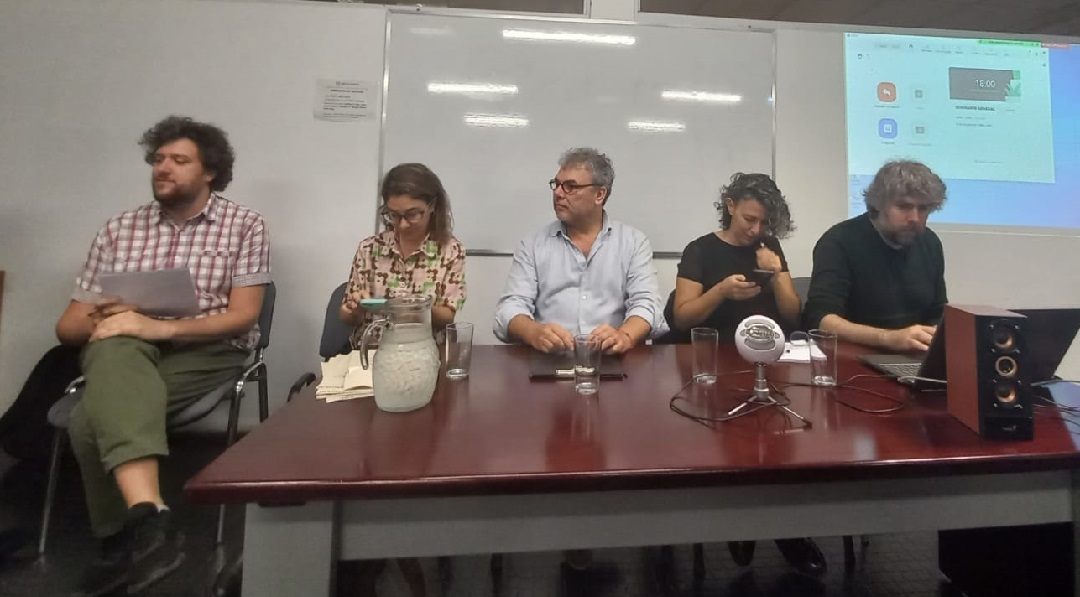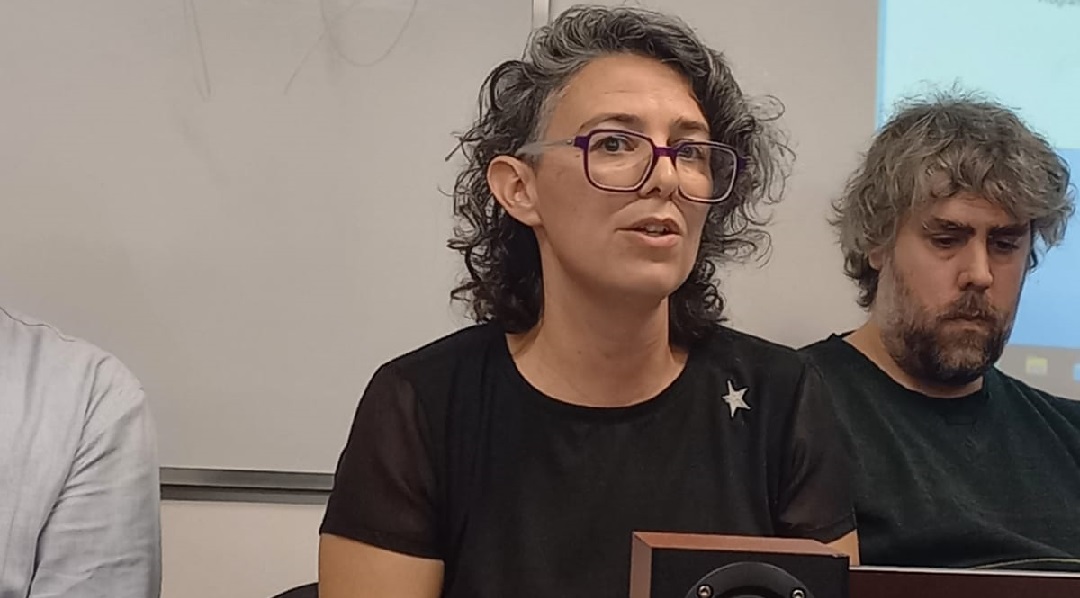UNSAM News/TSS Agency New technologies include all areas of daily life and affect them in different ways. Who regulates large digital platforms and by what mechanisms are these rules established? How is the unequal distribution of unpaid labor exacerbated by the expansion of digital capitalism? Where does the personal data we upload to every app we use go? How do the racial and gender biases of some AI designs impact the most vulnerable populations?
To answer these and many other questions posed by 21st century societies, IDAES School of the National University of San Martin UNSAM has established the Center for Studies on Digital Society (CESD), an interdisciplinary space that seeks to advance research on the impact of digitalization and artificial intelligence in multiple social dimensions, including the new culture of platforms, the world of work, digital finance, and education. Health, public policy making and gender issues. At the same time, it aims to take advantage of the tools provided by technologies such as artificial intelligence and… Machine to learn To answer the questions posed by the social sciences.
“The advance of digitalization has various impacts that we are already witnessing in society. We see them in our daily lives, in the way we exchange, communicate, verify, acquire goods, fall into debt. For example, educational dynamics have been reshaped in the wake of the pandemic using virtual modalities. The entire world of work is crossed by technological mediations that go beyond the issue of remote work. “This is why we believe it is so important to be able to present ideas and empirical studies that show diversity,” says Florencia Parteño, who holds a doctorate in social sciences and director of the new center. These effects.
the Power point The official event of the CESD was held on Monday the 6th at the UNSAM headquarters in the VOLTA building, and in addition to Partenio, the Centre’s coordinators, Germán Rosati and Flavia Costa, participated; Dean of IDAES, Ariel Wilkes; Research Secretary, Brenda Focus; And researchers who are part of the new space. The creation of the Center arose from the observation that within the School there are more and more researchers, trainees and students producing works related to the digital world from various disciplines. Therefore, we sought to bring these studies together in one place to highlight work that has already been done and encourage new research in these areas.

In order to study the impact of the digitalization of society, researchers use different techniques and methodologies such as digital ethnography and computational social science. These topics and research methods are thriving all over the world, and the pandemic has caused what previously existed to be dispersed and small groups to grow much larger. “Scientific production from public universities like UNSAM is essential at this moment to be able to participate in the global concert of discourses on the debate on technologies and artificial intelligence, and the social sciences and humanities have a lot to say in this field,” Partenio says. .
The specialist explains that one of the big debates in the world today is how to regulate technology companies, especially in the processing of sensitive data, which classifies the population in different ways and can determine the extent of access – or lack thereof – to rights, social programs, etc. “It is very important that the social sciences can influence debates that are sometimes treated only as technical when what is being decided is the influence of social policy. We can see the biases around age, gender and race that are expressed in the social context reflected in the digital context.” Warning about these biases and proposing other solutions is the mission of centers like ours and is part of the discussions taking place at the global level.
Social sciences and the productive sector, an essential link
In addition to the intrinsic novelty of the CESD research topics in themselves, this UNSAM center has some distinctive features compared to other similar spaces. The first is the interdisciplinary composition, which includes very diverse specialists: some develop new methodologies, others analyze the management of artificial intelligence, others address the sociology of work, and others are cross-disciplinary such as economics and anthropology. They also aim to give the center a federal character, creating bridges with research points that already exist in different parts of the country.
Another distinctive feature is the communication between the center and the productive sector through linkage projects and technology transfer. “There is a strong commitment to strengthening the technological link between researchers at public universities and various sectors of the world of work, such as unions, employers and cooperative sectors. This will allow, among other things, to think about the digital economy under other, more equal and accessible parameters, as is happening today with Collaborative sector of platforms offering collective building solutions. We believe that this center has a lot to contribute to building the dynamics of cooperation between platforms.” Partinho says.

The third distinctive aspect of the new center is international cooperation. This point is vital for the researcher because the topics of study in which this center will specialize will need constant updating. Therefore, the central axis is coordination with centers and universities in various parts of the world through agreements, academic networks, and various training residencies. In contrast, this expression will take place through dialogue with different regions, but from one perspective: thinking about technological developments from a South-South perspective, with a focus on the production that takes place in the Global South.
Looking to the future, Partenio says one of the center’s goals is to build an intellectual core and generate research communities that will allow the dangers and biases of digitalization to be exposed before they have a negative impact on society. “Many studies analyze scenarios when they have already happened. For example, there are studies in Latin America that show the dangers of using artificial intelligence without ethical frameworks and how this affects entire populations, who are excluded from social assistance programmes. We cannot reach When the effects are already visible, he concluded, “We have to build knowledge that anticipates the negative effects of using AI without regulation, and this kind of response can only come from the social sciences.”

“Social media evangelist. Student. Reader. Troublemaker. Typical introvert.”

:quality(85)/cloudfront-us-east-1.images.arcpublishing.com/infobae/TEQF6EONZRFGLLLDIDD4L2O4EE.jpg)

:quality(75)/cloudfront-us-east-1.images.arcpublishing.com/elcomercio/XU32LRAEZFDDPNVHLFU3CKVBYY.jpg)


More Stories
Venezuela ranks fourth in female leadership in science and technology in Latin America
In Portuguesa and Sucre they explore the wonderful world of science
The university court overturns the expulsion of two teachers and a chemical sciences student